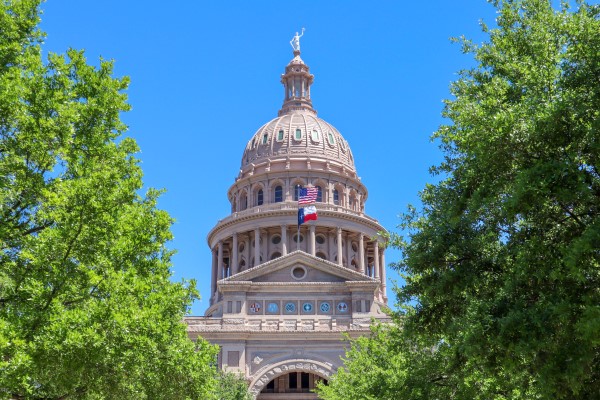Legislative Session Update: Week 14
Published Apr 12, 2019 by Taylor Landin
During the 86th Legislative Session, the Partnership will provide a weekly update on our top executive priorities and other newsworthy items from Austin.
This week in Austin there were a number of developments that could determine the trajectory of the remainder of the legislative session. After the House passed historic school finance reform legislation last week, the focus in Austin has shifted to the Senate Public Education Committee, which may take up the subject next week. Meanwhile, a proposal by state leadership to increase the state sales tax has introduced a new wrinkle into the discussion about how the state balances its investment in public education with property tax reform. With public school funding and property tax inextricably linked, the two highest profile issues of this session are set to dominate the coming weeks.
PARTNERSHIP EXECUTIVE PRIORITIES
FLOOD RESILIENCE
On Wednesday, the House voted on legislation related to disaster recovery, preparedness and future flood mitigation. The Partnership has been focused specifically on two bills. The first, HB 13, authored by Representative Dade Phelan (R-Beaumont) and co-authored by 118 of his House colleagues, creates a $3.26 billion fund that would allow local communities to apply for state dollars to construct necessary flood mitigation projects and take full advantage of federal matching funds. HB 13 also requires regional cooperation among stakeholders to be eligible for the funds. HJR 4 is a constitutional amendment that allows the state to create the fund described in HB 13, and must be approved by voters. The bills were approved without opposition. While HB 13 and the Senate’s flood mitigation bill, Senate Bill 7 by Senator Brandon Creighton (R-Conroe), will need to be reconciled, the strong support for these House measures demonstrates the commitment of the Legislature to making disaster recovery and future flood mitigation a priority.
SCHOOL FINANCE REFORM
This week, the House and Senate continued negotiations on public school finance reform. Leadership in both chambers are working to reconcile differences in how to effectively address several issues: specific program funding, an across-the-board teacher pay raise, and school district property tax compression. While Senate Education Committee Chairman Larry Taylor and the committee members are expected to hear a school finance bill next week, details of the legislation are still being finalized. Proposals by both the House and Senate include $9 billion in new state funding, but there will be changes made to the substance of the legislation through a committee substitute.
WEEK IN REVIEW
Sales Tax
In addition to property tax reforms, legislators are discussing the possibility of reducing school property taxes in exchange for a sales tax increase. This approach is being introduced when negotiations on the most important issues are reaching critical points. The details are developing, but the essence of the proposal is to combine a sales tax swap with school finance and property tax reform as part of a broader package to meaningfully reduce local school property taxes. This proposal is not designed to raise new money for public education. Governor Abbott, Lieutenant Governor Patrick and House Speaker Bonnen issued a joint statement Wednesday calling for a one cent sales tax increase to buy down local school property taxes. Other proposals have cited increasing the state sales tax by one percentage point, from 6.25% to 7.25%. The exact number could change as negotiations continue, and some proposals call for dedicating a portion of the sales tax revenue to a teacher pay raise. The Texas Taxpayers and Research Association estimates a one percent sales tax increase could reduce the average school property tax rate by $0.20 and account for approximately $5 billion per year.
Economic Development
The House overwhelmingly passed House Bill 360 by Representative Jim Murphy (R-Houston), which extends the Chapter 312 economic development program for 10 years. Chapter 312 allows cities and counties to provide tax exemptions or reductions. The House also passed House Bill 2129 by Representative Murphy, which extends Chapter 313, a similar program operated by school districts. The bills are now pending in the Senate and awaiting hearings in the Senate Committee on Natural Resources and Economic Development, chaired by Senator Brian Birdwell (R-Granbury).
Stay up-to-date with our Policy Team throughout the 86th Legislative Session by opting-in to this weekly update or follow the team on Twitter @GHP_Policy
 The Houston Report
The Houston Report


















